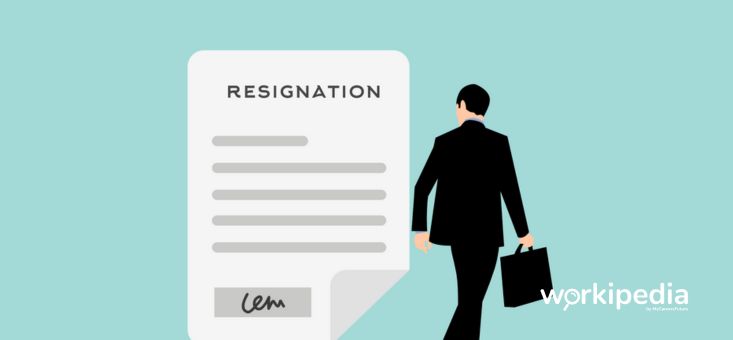Relationships are vital in any successful career, and one cannot be sure what the future holds, making it vital to leave on good terms with soon-to-be-ex colleagues and managers. These are people who already know and rate your work, and you never know when your paths might cross again, be it as future colleagues, managers, referees or just valuable business connections.
Here’s how you can resign professionally, whilst counting down to your new career journey:
1. Inform your employer
It is in both your and your employer’s interests to communicate that you have accepted a new offer as soon as possible. Face-to-face is obviously best: set up a meeting where you can talk in private and think ahead about what you’re going to say, and what questions your manager is likely to ask you. If a face-to-face meeting isn’t possible, Skype or a phone call is the next best option. Resigning by email is seen as a discourteous approach.
- Have a letter prepared to formally give notice of your resignation once you’ve discussed it in person.
- Make sure you know what your contracted notice period is, as the best way to manage this period is sure to be discussed in the meeting.
- Always start by expressing thanks for the opportunities you’ve had in the current role.
- If asked about your reasons for leaving and/or feedback on your experience in the job, stay positive and professional, and don’t go into too much detail at this point. You can set up an exit interview later to give more detailed, constructive feedback.
- Ask your manager when and how they’d like to communicate your news to the rest of the team. It’s a professional courtesy to put them in charge of this decision.
2. Address any counter-offers
Employers would generally try and hold on to good people than start to hire all over again, so you might expect a counter-offer. This could include more money, better benefits, a new job role, or even a transfer to a different role or division.
A counter-offer is flattering, and a sign that you are valued. At the same time, however, always remember that your response needs to be a careful business decision, not just an initial emotional reaction. Research shows that many people who accept a counter-offer go on to leave quite soon after, so ask yourself:
- Why did I want to leave in the first place? Will the new offer address those frustrations or are they likely to crop up again?
- Would you have received a pay rise or promotion soon if you hadn’t decided to leave?
- Are you convinced that your current employer has a genuine development plan for your long-term future?
- If you do stay, how are your relationships with your current manager and colleagues likely to be affected by the fact that you wanted to leave?
- What will you miss out on by not taking the new offer?
If you are considering to stay, ensure that your employer is prepared to commit to the counter-offer in writing, with details of the terms that have been offered you face-to-face.
3. Complete your notice period and handover
If you reject the counter-offer, typically there may be some negotiation over how much notice you are to work. Your outgoing employer will want you to stay for as long as possible, while your new employer will be keen for you to start as soon as possible.
Even if you don’t get your ideal outcome from this conversation, it’s vital to stay focused and see the period out. Trying to leave earlier without agreement could jeopardise any termination benefits (or future references). Do try to be as flexible as possible with your current employer in the interests of goodwill and maintaining the relationship. Your new employer will wait for you as they obviously think highly of you.
Next, do take proactive steps to hand over your role.
- Ask your line manager how you can best support them in handing over your work to other colleagues and/or your future replacement.
- Work out which projects and tasks need your urgent attention, and detail all those which you can commit to seeing through within the timeframe of your notice period.
- Even if not asked to, you could prepare a detailed handover document which will allow others to pick up your outstanding projects and responsibilities. Think hard about what people will need to know in your absence.
- Find solutions for how the rest of your team can cover for you in the short-term, and make suggestions about which team members can take over some of your responsibilities.
- If there are specific client relationships or operational responsibilities you need to hand over, arrange some one-to-one meetings to go through these in more detail with the right people.
- If appropriate, you could also offer to help your employer in the hiring process for your replacement, since you have the first-hand experience of which skills and traits matter most in the role.
Ready for your next role? Make an appointment to see a career coach to help with your job search.
4. Keep in touch
Think about the people you work with now and whom you want to keep in touch with after you’ve left, both socially and professionally. After resigning but before leaving, you can start putting steps in place to make sure you can maintain contact.
- Circulate a personal email address where people can reach you.
- Link with soon-to-be-ex colleagues via LinkedIn, Twitter and any other relevant platforms.
When keeping in touch, always stay professional:
- Don’t share any sensitive information about your new employer.
- Look out for interesting industry news, views, research and events that give you a good excuse for getting in touch with key contacts from your old job.
- When speaking with former colleagues, avoid criticising your previous employer or comparing conditions at your new job with your old one.
5. Get ready to hit the ground running
Even before you’ve left your old job, you can start building up a good impression for your new role and give yourself a head start on the exciting new challenges ahead:
- Start to connect with appropriate new colleagues on social media and accept any invitations that come your way.
- Ask your new line manager if there’s anything you can read or do to help prepare for your new role.
- Do some general desk research about your new role and employer.
- Start to plan your new route to work.
Finally – stay calm and confident. Starting a new job can feel daunting, but remember that you were selected by your new employer out of many candidates as the best for the role.
Remind yourself too why you wanted to move on, and why this new opportunity appealed to you. Now all you have to do is get out there and make the most of it!
This article is contributed by Robert Walters Singapore.















